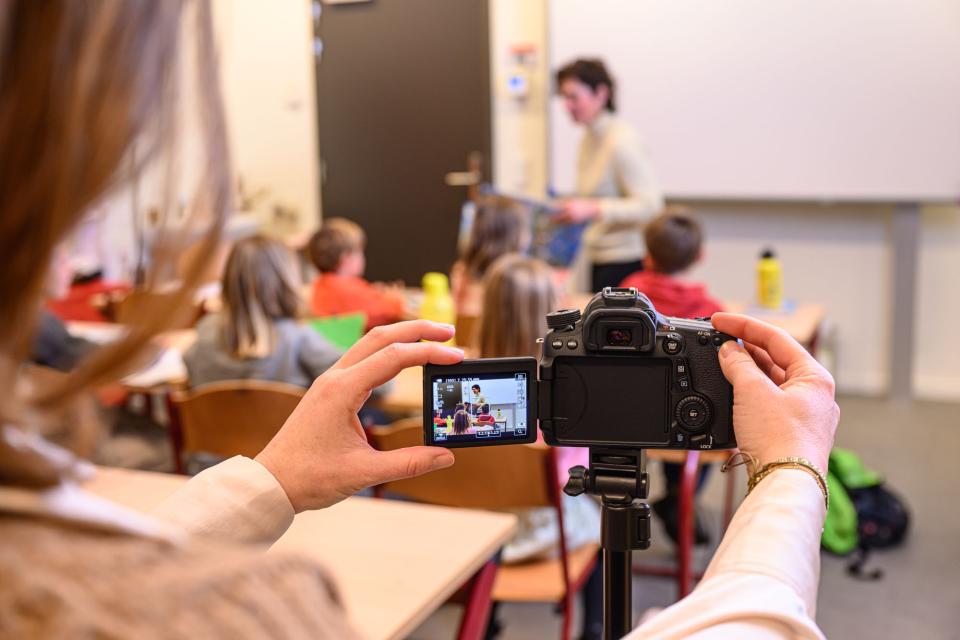The Erasmus+ project 'antibias education for early childhood teachers: learning through videocoaching' (or in short: ‘ABC4T’) aims for antibias early childhood education in 5 European countries (Belgium, Norway, Poland, Austria and Spain). The project is co-funded by the European Union.
Early childhood educators often feel insufficiently equipped to address diversity effectively. To foster a strong self-image in every child and encourage positive attitudes toward diversity, it is crucial to support educators in developing antibias competencies. To address this need, we design and evaluate a professionalization program with video coaching and a widely applicable toolkit. Both the program and toolkit are developed following the educational design research (EDR) approach (McKenney & Reeves, 2012) and are being co-constructed and evaluated in collaboration with experts as well as pre- and in-service early childhood from the participating countries.
Introduction
Today’s society—and consequently our schools—are incredibly diverse. While research and policy emphasize the importance of antibias education in addressing this diversity constructively, practice reveals that there is still significant progress to be made. Various studies indicate that early childhood educators across Europe often feel inadequately prepared to teach in diverse, intercultural contexts (e.g., Agirdag et al., 2016; Slot et al., 2019). This underscores the need for targeted support and professionalization in anti-bias education.
Key features of effective professional development programs (PDP) for antibias education are: an embedded and contextual approach, guided critical reflection, and sustainable enactment (Romijn et al., 2021). Integrating video coaching into a PDP is a promising strategy, as it aligns with these characteristics. Therefore, this project explores the potential of video coaching in a PDP to foster enactment of antibias competences. This innovative approach not only enhances understanding of (implicit) beliefs and individual daily practices but also equips teams with a robust methodology to cultivate a reflective culture. As a result, video coaching serves as a powerful tool to deepen critical insights and strengthen team dynamics (Verschaeve et al., 2020).
Goal of the project
The aim of this project is to enhance the antibias-competencies among early childhood educators in five European countries. This will be achieved through the co-construction and evaluation of a professionalization program featuring video coaching and a widely applicable toolkit. By focusing on anti-bias education, we aim to promote inclusion and social equity in early childhood education, thereby strengthening the self-image, attitudes, overall well-being, and learning processes of all young learners.
Research method
In ABC4T, we follow the method of educational design research (McKenney & Reeves, 2012). We start with an exploration and analysis phase in which we conduct 2 literature reviews in the European context. These reviews aim to provide insights into 1) effective professionalization initiatives in antibias education, and 2) the potential of video coaching in this domain. In addition to the literature review, we collect data from early childhood educators across five countries through a questionnaire and in-depth interviews. This helps us identify current best practices, pressing questions, and specific needs in antibias early childhood education. Using the collected data, we proceed to the design and development phase. Here, the partner countries collaborate with three early childhood organizations to co-create a professionalization program incorporating video coaching and a widely applicable toolkit. The program and toolkit will undergo multiple rounds of evaluation and refinement to ensure their effectiveness and adaptability. Afterwards, a pilot version of the program and toolkit will be conducted, involving educators from various countries. The impact on the (perceived) competencies of early childhood educators will be assessed through pre- and post-measurements.
Additionally, we will gather insights into the strengths, opportunities, and challenges of video coaching as a methodology to enhance anti-bias practices in early childhood education.
Follow the project on LinkedIn








